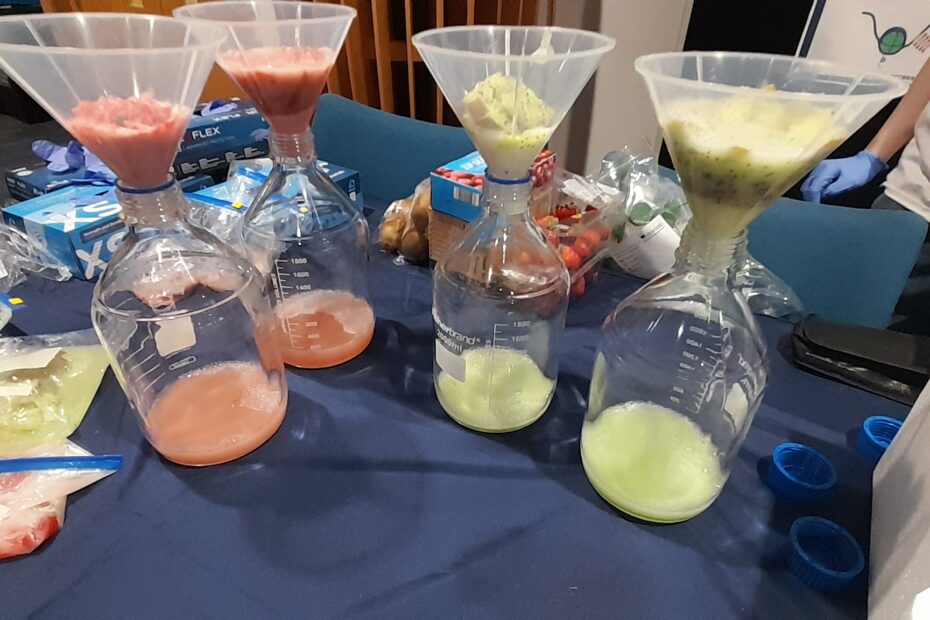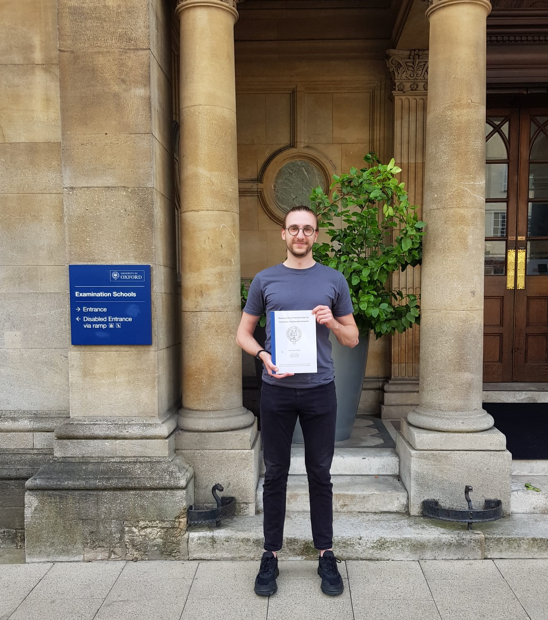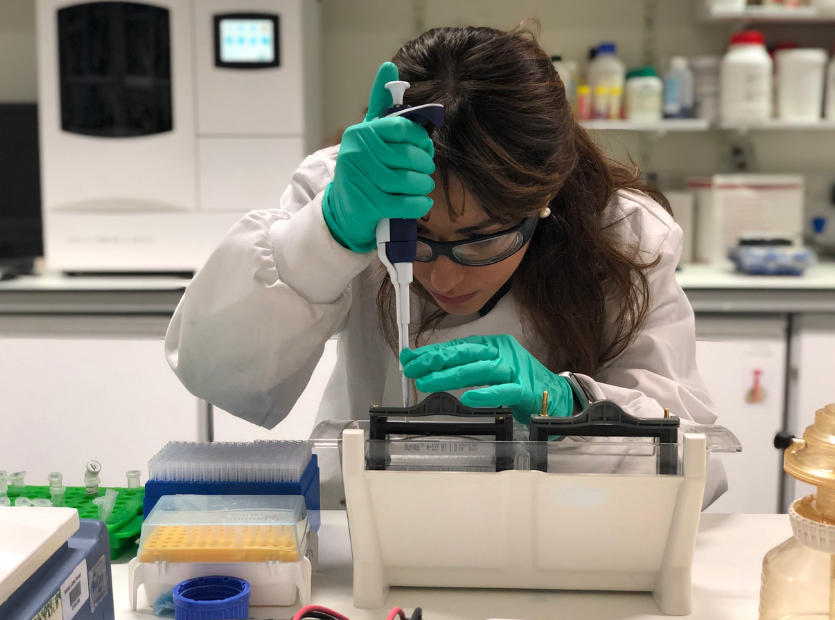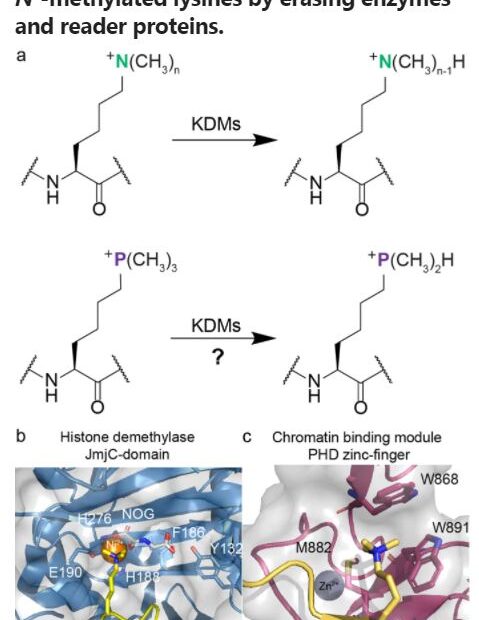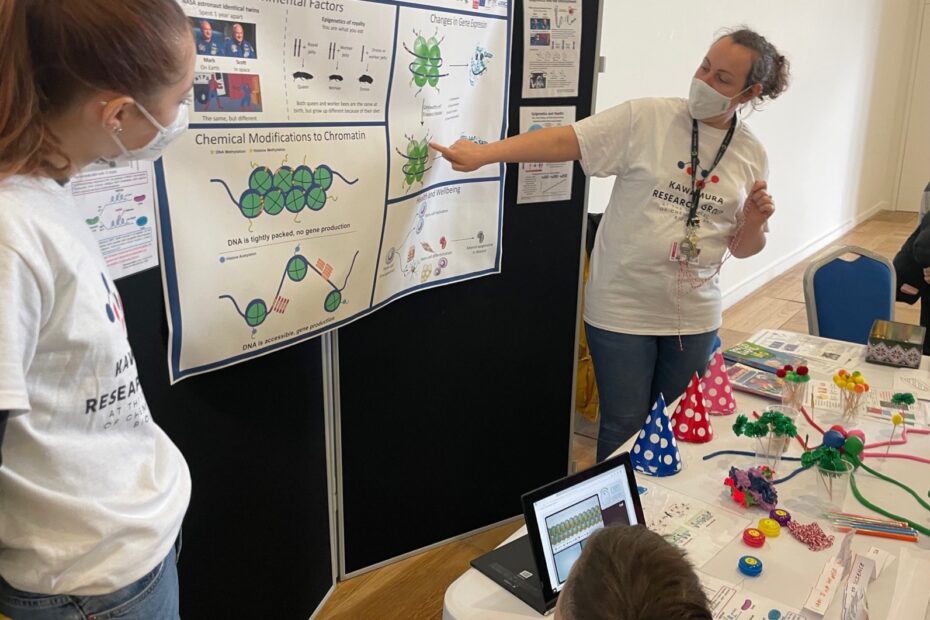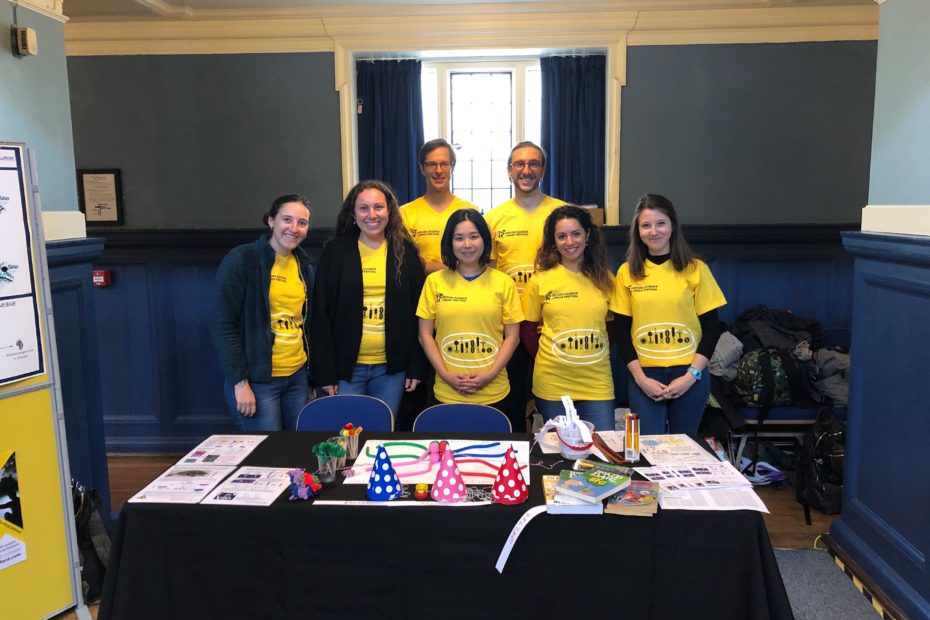Families Learn about Juicy Genes
Researchers from the Kawamura Research Group hosted an activity at this year’s Discover Festival – a one-day interactive event for families and members of the public on 7th June 2025 at Newcastle University. The hands-on activity provided attendees with an opportunity to extract and see DNA using a simple experiment involving kiwis and strawberries, as well as better understand the role that DNA plays, and why epigenetics is important when fighting diseases like cancer. “It was so great to see so many passionate young minds that were keen to try our practical experiment. Teaching them more about DNA and it’s role in epigenetics was very rewarding!” – Rob Dawber, Research… Read More »Families Learn about Juicy Genes
